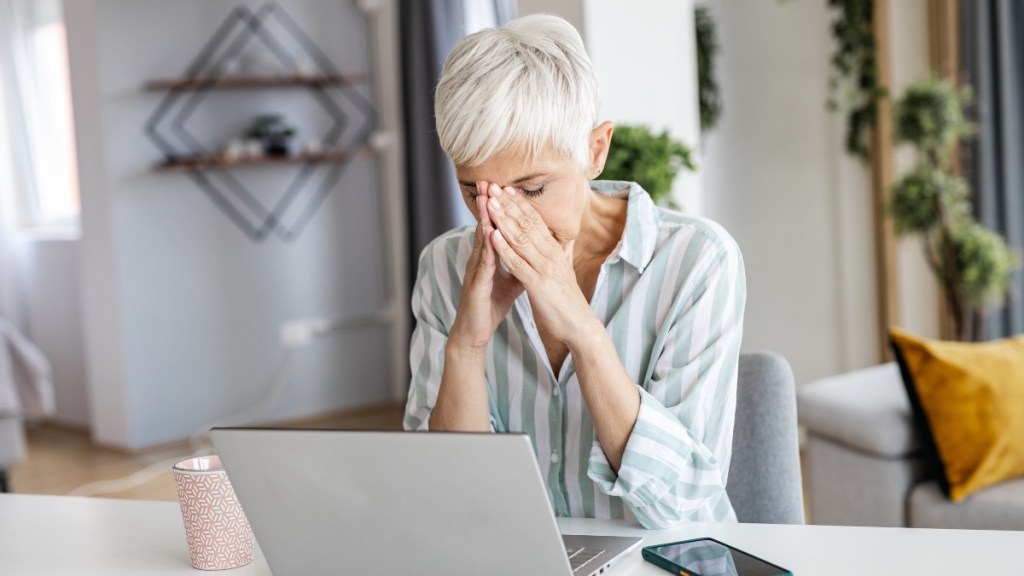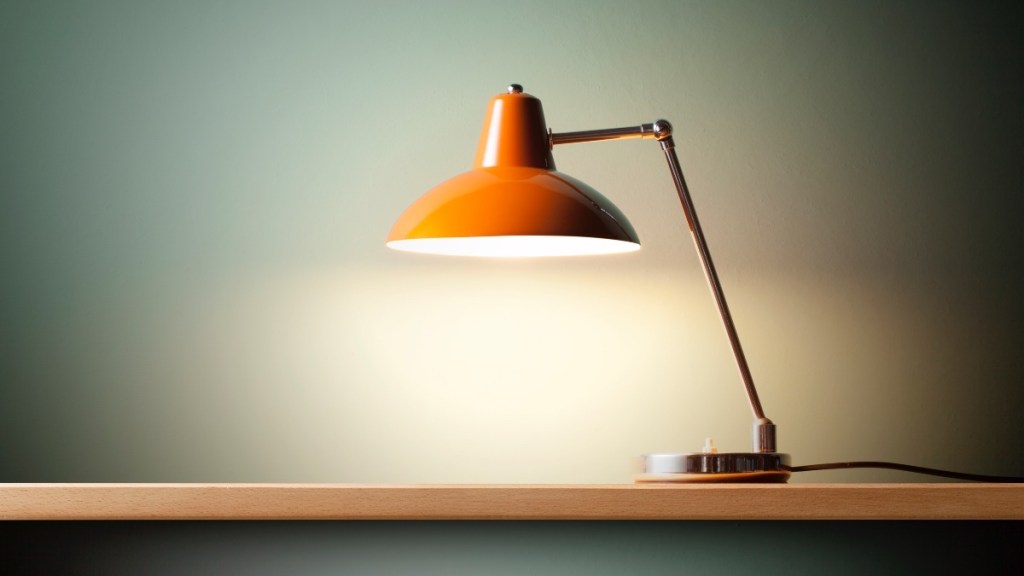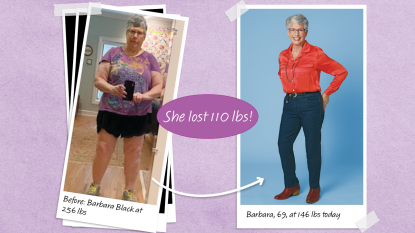10 Sneaky Causes of an Afternoon Slump + Easy, Natural Ways To Boost Your Energy
Symptoms like tense muscles or cravings can clue you into the hidden culprit — and the fast fix

If you’re like us, the following scenario is all too familiar: You wake up ready to take on the world and spend the morning powering through tasks feeling like this will be the day you finally reach the end of your to-do list. Then you break for lunch, expecting to jump back in afterward where you left off. Then. Something. Happens. Sometime between 1 pm and 4 pm, you lose steam. You feel your energy drain to barely-there levels and it’s a struggle to keep your eyes open. You’ve hit the dreaded afternoon slump.
A sudden, temporary decrease in pep after lunchtime is so common, researchers have given it official names: postprandial somnolence and the post-lunch dip. Here, find out how secondary symptoms like craving salty snacks or muscle tension can clue you into the hidden cause of your dragginess. Plus we reveal 10 easy ways to sidestep an afternoon slump so you can breeze through even your busiest days with ease.
How your body clock can trigger an afternoon slump
There’s typically no reason to worry if you experience a loss of energy in the afternoon. That’s because University of Pittsburgh Medical Center research shows that your body is actually wired to slow down at this time of day. “It’s part of our circadian rhythm,” explains Jamie Zeitzer, PhD, professor of psychiatry and behavioral sciences-sleep medicine and co-director of the Center for Sleep and Circadian Sciences at Stanford University.
Indeed, this afternoon slowdown happens regardless of whether you’ve eaten lunch and even if you don’t know what time of day it is. “Most people can experience this,” notes Zeitzer who’s also the scientific advisor for the RISE sleep-tracking app. “Whether they do or not, it’s a different issue,” he adds. (Click through to learn how an iron deficiency without anemia can cause fatigue, too.)
Can you avoid an afternoon slump?
Yes! While biology may have you temporarily ramping down in the middle of the afternoon, truth is, this slowdown is mild enough that most of us can push through and continue on until our energy naturally climbs by the end of the afternoon. The kind of overwhelming fatigue that has you hitting a brick wall after lunch and craving a nap is usually caused by other factors that exacerbate an afternoon drop in energy, such as lack of high-quality sleep, dehydration, a heavy meal or stress.
The good news? If you can home in on the culprit intensifying your post-lunch dip, you can resolve it. And luckily finding out the cause of your afternoon slump is easier than you might imagine. (Tip: If you’re often groggy after meals, click through to learn if falling asleep after eating is a sign of diabetes.)

10 ways to outsmart an afternoon slump
To get your energy levels back on track, check for little health clues that pinpoint the hidden cause behind your afternoon slump. Then, use these simple tricks to beat it:
Also toss and turn at night? Get more vitamin D
If you’re a restless sleeper, heads up: Not getting a full 7 to 8 hours of sleep can trigger greater afternoon fatigue, according to research in the journal Biology of Sport. “If you have insufficient sleep at night, sleep pressure will have built to even greater levels the next day,” explains Zeitzer. As a result, the natural lull you feel after lunch will be intensified, making it difficult to keep your eyes open.
A review of 5 studies in the journal Nutrition and Health reveals the easy trick to getting longer, deeper sleep. Simply take 600 IU of vitamin D3 (the most absorbable form of vitamin D) every day. This vitamin helps regulate areas of the brain (such as the hypothalamus and prefrontal cortex) that manage sleep. That’s key, since more than 4 in 10 American adults are low in vitamin D, a problem that worsens during winter’s shorter, darker days. (Click through for the best vitamin D supplements for women over 50.)
Also crave salty snacks? Sip H2O
If you get brain drain and crave salty snacks in the afternoon, drink more water, milk or other alcohol-free beverages. Mental fuzziness and salt cravings are signs of dehydration. And it doesn’t take long for symptoms to kick in. Research from the University of Connecticut shows that being just slightly low in fluids spurs tiredness.
And while you know it’s easy to get dehydrated on a hot summer day, surprisingly, winter can trigger fluid loss, too. In fact, University of New Hampshire say your risk of getting dehydrated actually climbs in cold weather months. That’s because frigid outdoor temperatures reduce the output of the hormone arginine vasopressin that triggers thirst by up to 40%, so you forget to drink. By reminding yourself to hydrate regularly (say, by keeping a refillable water bottle nearby), you’ll prevent a shortfall in sips and stay more alert. (Click through to learn how a motivational water bottle can help keep your fluid levels up.)

Also have brain fog? Savor chicken salad
If fatigue is accompanied by mental fogginess about 30 minutes after lunch, the likely culprit is your meal. If you’re like us, you love a hearty meal like lasagna or grilled cheese. However, in a study from the Institute of Food Research in the UK, volunteers who ate a high-fat or high-carb lunch became drowsier and more mentally sluggish than folks who ate only a medium amount of fat and carbs, despite the meals having equal calories.
“When we eat carbs, our bodies break them down into glucose to fuel our cells and brain,” explains registered dietitian Miranda Galati of Real Life Nutritionist. “When you eat a meal high in carbs, the balance of macronutrients is thrown off. Your body will experience a stronger and faster rise in blood sugar, and it will drop just as quickly. This can leave you feeling drowsy, lethargic and with a low mood,” she says. “And if you eat a meal too high in fat, your body may have a harder time utilizing the energy from carbs. This can leave you feeling sluggish and less sharp.”
The simple fix: Combine smaller portions of favorite rich comfort foods with low-carb and low-fat options (such as vegetables, fruits, broth and chicken) to help your body balance blood sugar, keeping up pep. “A balanced lunch can make all the difference for your afternoon mood and performance,” Galati notes. (Click through for more easy ways to get rid of brain fog fast.)
Also feel sleepy? Switch on a light
If your afternoon energy drops low only when it’s cloudy out or during winter’s shorter days, turning on a lamp when you wake can help you sidestep a slump later in the day. Dark mornings can disrupt your body’s production of the sleep hormone melatonin. This can lead to too much of this hormone throughout the day.
But research in the journal Ergonomics shows that exposing yourself to blue wavelength light tamps down excess melatonin, so you stay energized. To get the benefits, simply turn on a light bulb that mimics the sun’s natural blue light. One to try: GE Sun-Filled LED Bulb (Buy from Amazon, $11.07.)

Also chugging coffee? Take smaller sips
If you’re trying to reverse an afternoon slump with a big mug of caffeinated coffee or tea, here’s surprising news: A supersized sip isn’t your best bet. Harvard researchers found that consuming small amounts of a caffeinated beverage throughout the day helps you maintain momentum more effectively than drinking a lot all at once. A light, steady intake of caffeine blocks the gradual buildup of tiring adenosine in the brain that worsens afternoon sleepiness. (Click through for the health benefits of a single cup fo coffee.)
Also have tense muscles? Putter around
If you’ve ever noticed your muscles tense and you become more easily frustrated in the morning, then you hit the proverbial brick wall after lunch, stress is likely to blame. These are signs that mental anxiety in the first half of your day is tiring you out in the second half by keeping your body’s sympathetic nervous system (responsible for your fight or flight response) activated, say scientists from Texas A&M University.
Fortunately, the remedy for calm, happy energy is as simple as walking during lunch. An easy way to get some movement in? Puttering around your house to water your plants or strolling through your neighborhood or local mall. Research out of Australia’s Curtin University shows that 30 minutes of midday walking at any speed tamps down stress, which improves afternoon pep.

Also distracted? Have fun
Finding it hard to focus on a task is a sure sign of boredom, York University research reveals. And a study out of Loughborough University in the UK shows that if you get bored in the afternoon, it can sap whatever energy you’ve got. So, what can you do? Save creative tasks (like brainstorming ideas for a church fundraiser) for after lunch! “Fun, interesting and creative activities can serve as mental rejuvenation to counteract the afternoon slump,” says Jenny Woo, PhD, founder of Mind Brain Emotion and creator of the card game 52 Essential Life Skills
“When we engage in an enjoyable or intriguing activity, our brain releases dopamine, enhancing mood and boosting focus,” Woo explains. “These activities promote increased blood flow and neural activity in brain regions linked to attention and cognitive processing, leading to heightened attentiveness and decreased drowsiness.”
Also crave candy? Savor cottage cheese
If you’ve got a hankering for chocolate, jelly beans or other sugar-sweetened snacks in the afternoon, it’s a sign that your body knows you’re low in energy and wants you to power up, suggests a study from the University of Colorado Boulder. But turning to sweets won’t give you the lasting boost your body needs. The same study found that even though sugar gives you an initial buzz, it ends up leaving you even more tired since it triggers a sharp rise and fall in insulin.
A better option? Snack on cottage cheese or a hard-boiled egg. Scientists from the University of Cambridge in the UK found that eating a protein-rich afternoon snack gives you a bigger boost in pep than sugary foods. Plus, you don’t end up crashing. Credit goes to amino acids in protein that stimulate orexin cells in the brain that boost alertness and ward off an afternoon slump. (Click through for a delicious cottage cheese bread recipe that has nearly 50% more protein than white bread.)
Also have slower reaction time? Try a tongue twister
If you’re driving on the road between 1 pm and 4 pm, you can experience the same kind of afternoon slump that you’d get if you were home. And this effect is worse during dull, monotonous drives, such as when you’re on highways and empty roads. Unfortunately, drowsiness behind the wheel can lead to slower reaction times and making mistakes (like not noticing you’re drifting into another lane), which is the cause of more than 328,000 crashes in the US every year.
So, how can you stay vigilant and energized? Belt out as many lyrics as you can recall to a favorite song or try to say tongue twisters (such as “Irish wristwatch, Swiss wristwatch”). Research from the University of Kansas shows that verbal games improve alertness and driving ability in both short and long monotonous drives. That’s because they’re enough of a challenge to keep your brain engaged, however, they don’t distract you from the road like talking on a cell phone can. Need a little inspiration? Check out the video below for 50 fun tongue twisters.
Also have sudden brain drain? Eat breakfast
If you find it difficult to do even the simplest mental tasks after lunch (like making a grocery list), the reason could be that you skimped on breakfast. Skipping the first meal of the day spurs a double-whammy of pep-sapping problems after you eat lunch. A study in the British Journal of Nutrition shows that it prompts a steeper rise and drop in insulin. And and a study in Clinical Physiology and Functional Imaging shows that it diverts more blood flow from the brain to use for digestion. By eating a bowl of cereal or eggs at the start of your day, you’ll ensure you have more vitality for the rest of your day, too, easily sidestepping an afternoon slump.
For more ways to keep your energy up and brain fog at bay:
Top Experts Reveal the 12 Best Ways To Get Rid of Brain Fog Fast
Your Tiredness + Brain Fog May Be Caused By An Underlying Food Sensitivity
Nutritionist: Energy Vampires Are Real — And Likely Living In Your Gut Right Now
This content is not a substitute for professional medical advice or diagnosis. Always consult your physician before pursuing any treatment plan.













